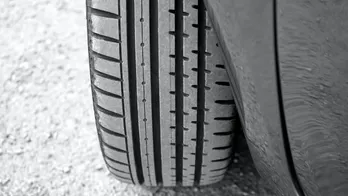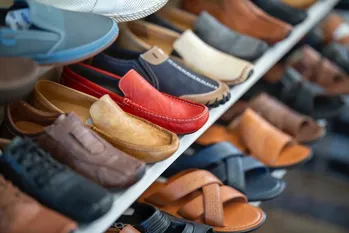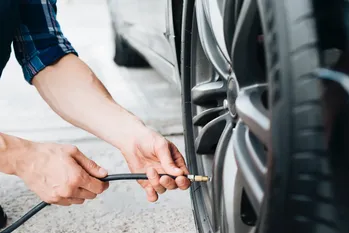I. Introduction
A. Explanation of the importance and need for tires
Tires are an essential component of any vehicle, providing traction, stability, and control on the road. They play a crucial role in ensuring the safety of the passengers and the driver. The condition of the tires can impact fuel efficiency, handling, and overall performance. It is therefore vital to purchase high-quality tires at the right time for optimal performance and safety.
B. Why people should buy their tires at the right time
Buying tires at the right time has several benefits, including cost savings, better selection of choices, and improved safety. Seasonal fluctuations in tire prices, weather conditions, driving habits, and manufacturer recommendations all influence the best time to purchase new tires. This article aims to provide readers with insights into these factors so they can make informed decisions about when to buy tires.
C. Purpose of the article - to help people find out the best times to buy tires
The goal of this article is to shed light on the different factors that affect tire prices and quality, helping readers determine the ideal time to purchase new tires for their vehicles. We'll explore seasonal trends in tire sales, weather conditions, driving habits, and manufacturer recommendations. Additionally, we will provide tips on how to find the best deals on tires and ensure maximum savings when making a purchase.
II. Factors to consider when buying tires
A. Price fluctuations throughout the year
1. High and low seasons for tire sales
Like other products, tire prices experience seasonal fluctuations. During peak sale seasons like summer, winter, or back-to-school months, there may be a surge in demand for new tires, leading to higher prices. Conversely, during off-season periods, retailers often offer discounts and deals on their inventory to attract customers and clear out old stock.
2. Deals and discounts during certain times of the year
Retailers typically offer significant sales during holidays like Black Friday/Cyber Monday or Christmas/New Year's Eve. These are excellent opportunities for buyers to save money on new tires. Additionally, tire manufacturers also launch promotional campaigns that provide attractive deals to consumers who purchase their products.
B. Weather conditions
1. Timing of tire changes with changing weather patterns
Weather plays a significant role in determining the type and condition of the tires required for a vehicle. For instance, winter tires are essential during snowy or icy weather conditions, whereas all-season tires suffice during moderate climates. Therefore, it is crucial to consider the local climate while deciding on the right time to buy new tires.
2. Importance of having good tires in various weather conditions
Having appropriate tires for specific weather conditions is vital for safety and performance. For instance, poor-quality or worn-out tires can lead to accidents in wet or snowy conditions due to reduced grip and traction on the road. On the other hand, all-weather tires provide enhanced stability and control in various conditions, improving overall driving experience and safety.
C. Vehicle usage and driving habits
1. Tire wear based on mileage
The frequency of use and driving habits can impact tire durability. Vehicles that are driven frequently or cover long distances tend to wear out tires faster than those used occasionally. Regularly monitoring tire tread depth is essential for maintaining optimal performance and avoiding potential accidents.
2. Driving habits that affect tire life
Aggressive driving styles such as rapid acceleration, hard braking, and cornering can lead to premature tire wear. In contrast, slow and steady driving can prolong tire life. Therefore, it is crucial to adopt safe and responsible driving practices for longer-lasting tires.
D. Manufacturer recommendations
1. Warranties and manufacturer guidelines
Tire manufacturers typically provide warranties on their products that indicate the expected lifespan of a tire under normal conditions. It's essential to consult these guidelines while making purchasing decisions to ensure maximum durability and performance from the tires.
2. Expected lifespan of tires
The average lifespan of a tire depends on various factors such as mileage, driving habits, and weather conditions. However, most tires have an expected life of around five to ten years. Monitoring tire tread depth is crucial in determining when it's time for replacement.
III. Tips for finding the best times to buy tires
A. Keep an eye on seasonal sales and discounts
To find the best deals on tires, keep track of seasonal sales and promotions offered by retailers or manufacturers. Utilize price comparison tools like CamelCamelCamel for Amazon price tracking to stay informed about fluctuations in tire prices throughout the year.
B. Monitor tire prices over time
Regularly check the websites of dealerships, local tire shops, or online marketplaces to monitor tire prices and identify trends. This practice will help you determine the ideal time to buy tires when they are at their lowest price point.
C. Consider the benefits of buying in bulk or through wholesale distributors
Purchasing multiple sets of tires from a wholesale distributor can result in significant savings compared to buying individually from retail outlets. This approach is particularly beneficial for those who require replacement tires frequently or want to stock up for future use.
IV. Conclusion
A. Recap of factors affecting tire purchasing decisions
In conclusion, several factors, including seasonal fluctuations in tire prices, weather conditions, driving habits, and manufacturer recommendations, play a crucial role in determining the right time to buy new tires. Regularly monitoring these variables can help vehicle owners make informed choices that align with their budget and safety needs.
B. Final thoughts on the best times to buy tires
Ultimately, the best time to purchase new tires depends on individual circumstances such as local climate, driving habits, and vehicle usage. By considering these factors and keeping an eye out for seasonal sales and promotions, consumers can find the perfect balance between cost savings and optimal tire performance.
C. Importance of responsible tire maintenance and safety
Lastly, it's essential to prioritize responsible tire maintenance and safety practices by regularly checking tire tread depth, ensuring proper inflation levels, and adhering to manufacturer guidelines for tire usage and replacement. Doing so will not only extend the lifespan of tires but also improve overall vehicle performance and reduce the risk of accidents caused by worn-out or defective tires.
Frequently Asked Questions (FAQ) about buying tires
Q1. How often should I replace my car's tires?
A1. Tires usually need replacement every 5-10 years, but it depends on usage and driving habits. Regularly checking tire tread depth is crucial for determining when to replace them.
Q2. What are the best times to buy new tires?
A2. The ideal time to purchase new tires varies based on factors such as seasonal sales, weather conditions, vehicle usage, and local climate. Monitoring these variables can help you find the perfect balance between cost savings and optimal tire performance.
Q3. How do I know if my tires are worn out?
A3. Regularly inspect your tires for signs of wear like shallow tread depth or uneven wear patterns. A minimum tread depth of 2/32 inch is recommended for safe driving.
Q4. What's the difference between all-season and winter tires?
A4. All-season tires provide adequate traction in various weather conditions, but may not perform optimally in extreme cold or snowy situations. Winter tires, on the other hand, are specifically designed for cold temperatures and provide enhanced grip and control on snowy or icy roads.
Q5. What's the advantage of buying tires in bulk?
A5. Purchasing multiple sets of tires from a wholesale distributor can result in significant cost savings compared to buying individually from retail outlets. It's particularly beneficial for those who require replacement tires frequently or want to stock up for future use.
Q6. How important is tire pressure maintenance?
A6. Proper tire inflation levels are crucial for maintaining optimal tire performance, reducing fuel consumption, and extending the lifespan of your tires. Regularly check your vehicle's recommended tire pressure and adjust as needed.
Q7. Can I use a worn-out tire on my car?
A7. Using worn-out or defective tires can lead to accidents caused by reduced grip and traction on the road. It's essential to replace them as soon as possible to ensure optimal vehicle performance and safety.
Q8. How much do new tires cost?
A8. Tire prices vary based on factors such as brand, size, type, and tread pattern. On average, a set of four new tires for a passenger car can range from $400 to over $1,000 depending on the quality and specifications chosen.
Q9. How do I know if my tire needs alignment?
A9. Signs indicating your vehicle may need an alignment include uneven tread wear, pulling to one side while driving, or vibration in the steering wheel. Regularly inspecting these signs can help prevent unnecessary wear and tear on your tires.
Q10. Can I buy just one new tire for my car?
A10. While it's technically possible to replace only one tire on a vehicle, it's generally not recommended due to potential handling issues that could arise from having different-aged or unevenly worn tires on the same axle. It's best to replace all four at once for optimal performance and safety.
Remember, purchasing new tires requires some research and planning. By answering these frequently asked questions about buying tires, we hope you'll find it easier to make an informed decision when it comes time for your next tire purchase.











